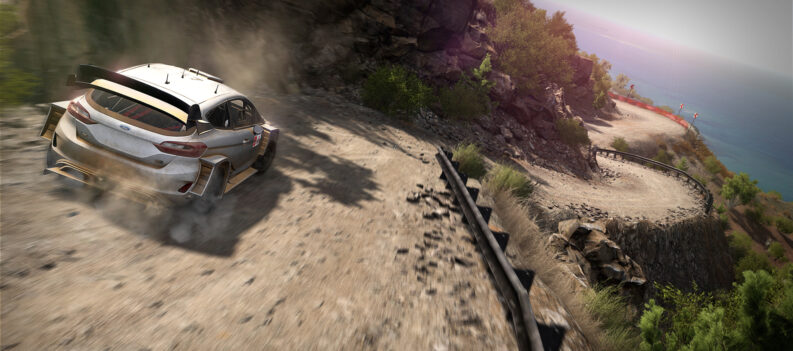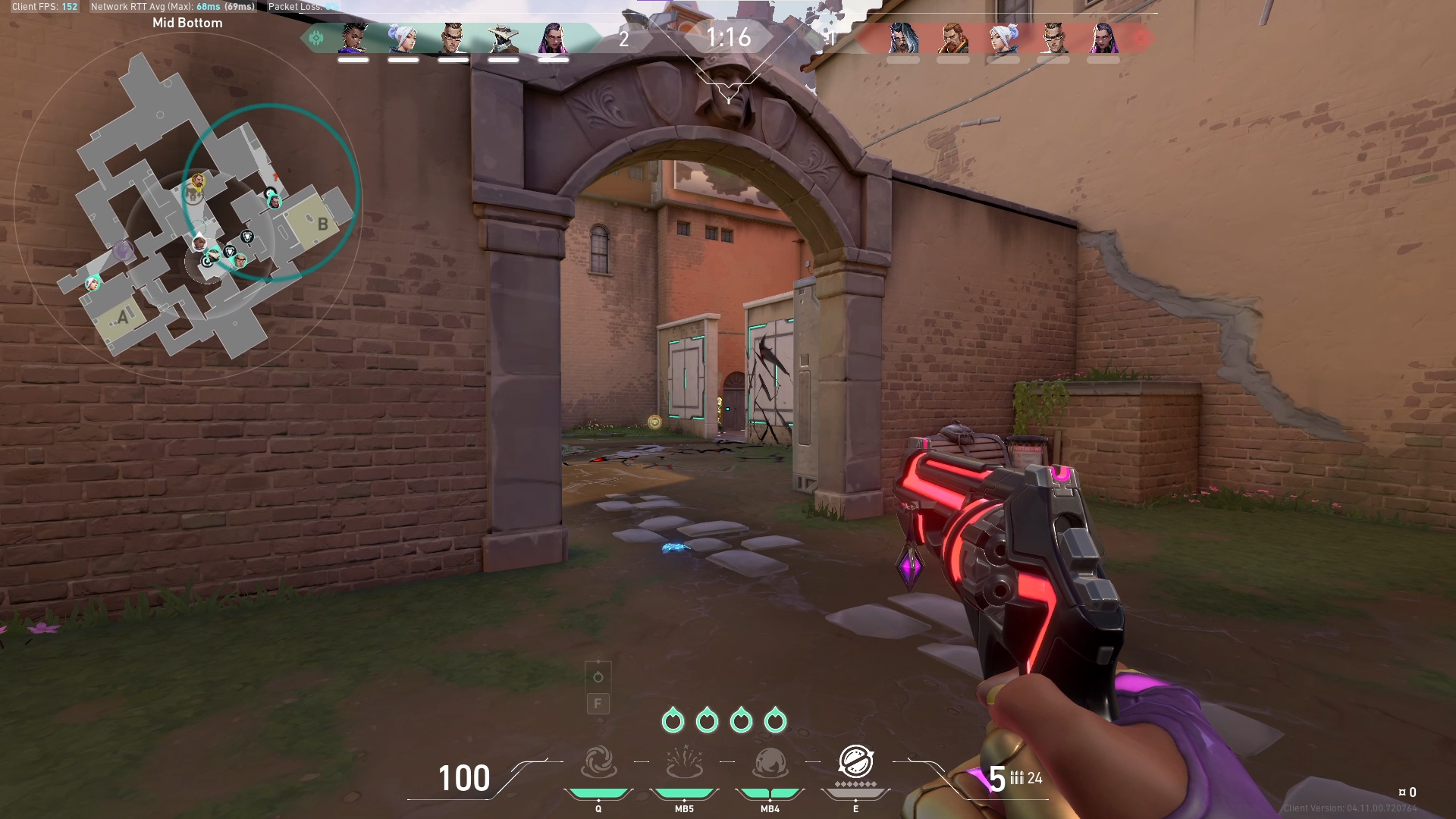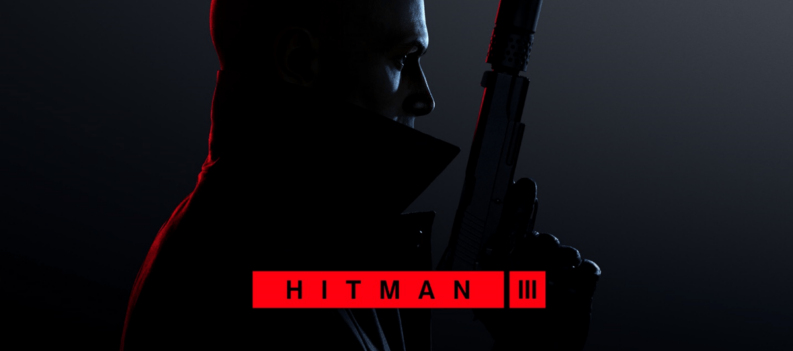Judgement of Atlantis marks the sixth and final entry in Assassin’s Creed Odyssey’s season of paid post-launch content which began with Legacy of the First Blade: Hunted back in December. This concluding chapter provides a satisfying, albeit safe, ending for the fantastical tale, while continuing to iterate on combat in meaningful new ways.
Having negotiated the bureaucracy of Elysium and tempered the fires of Hades, you now find yourself in the fabled city of Atlantis with the fate of its people, both Isu and human alike, placed in your hands. Named as Poseidon’s Dikastes, a judge for the divine, you are tasked with bringing balance to Atlantis, assuaging the animosity between humans and Isu, and ceasing the city’s accursed cycle once and for all.
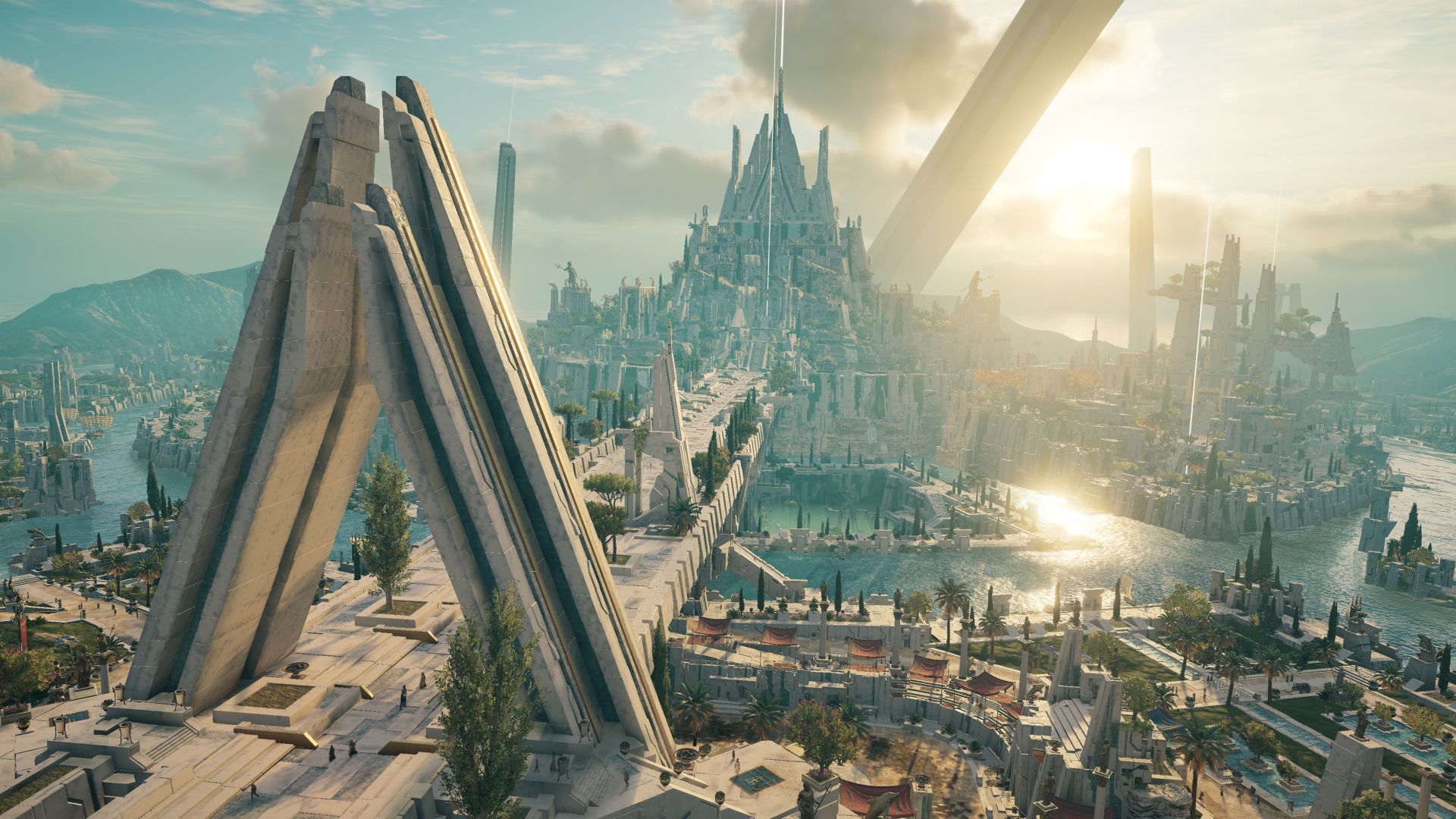
While not as sprawling as the realms of Persephone or Hades, Atlantis is perhaps the most striking of the three; a dense metropolis that marries Grecian grandeur with a futuristic, quasi-cyberpunk aesthetic to create something altogether new and wholly befitting of the Isu. Radiating from Poseidon’s towering temple at the heart of its concentric structure, each of the city’s strata is it own distinct district, bustling with life. Great azure waterways break up the regal, brutalist structures of white and gold while providing a constant reminder of the watery depths into which the city is destined to descend.
Your duties as Dikastes range from the mundane to the monumental. The story’s first act sees you entangled in the affairs of Atlas and Poseidon’s other sons as you seek to resolve each of their various vexations. Navigating the conflict between gods and men presents you with several tough choices and the freedom to handle each with peaceful diplomacy or violent ruthlessness, strengthens Judgement of Atlantis’ storytelling and thus your investment in the city’s fate. The episode also manages to give time for some strong character moments as Kass takes a step back from the disorder she finds herself caught in, reflecting on her circumstances with charming irreverence.
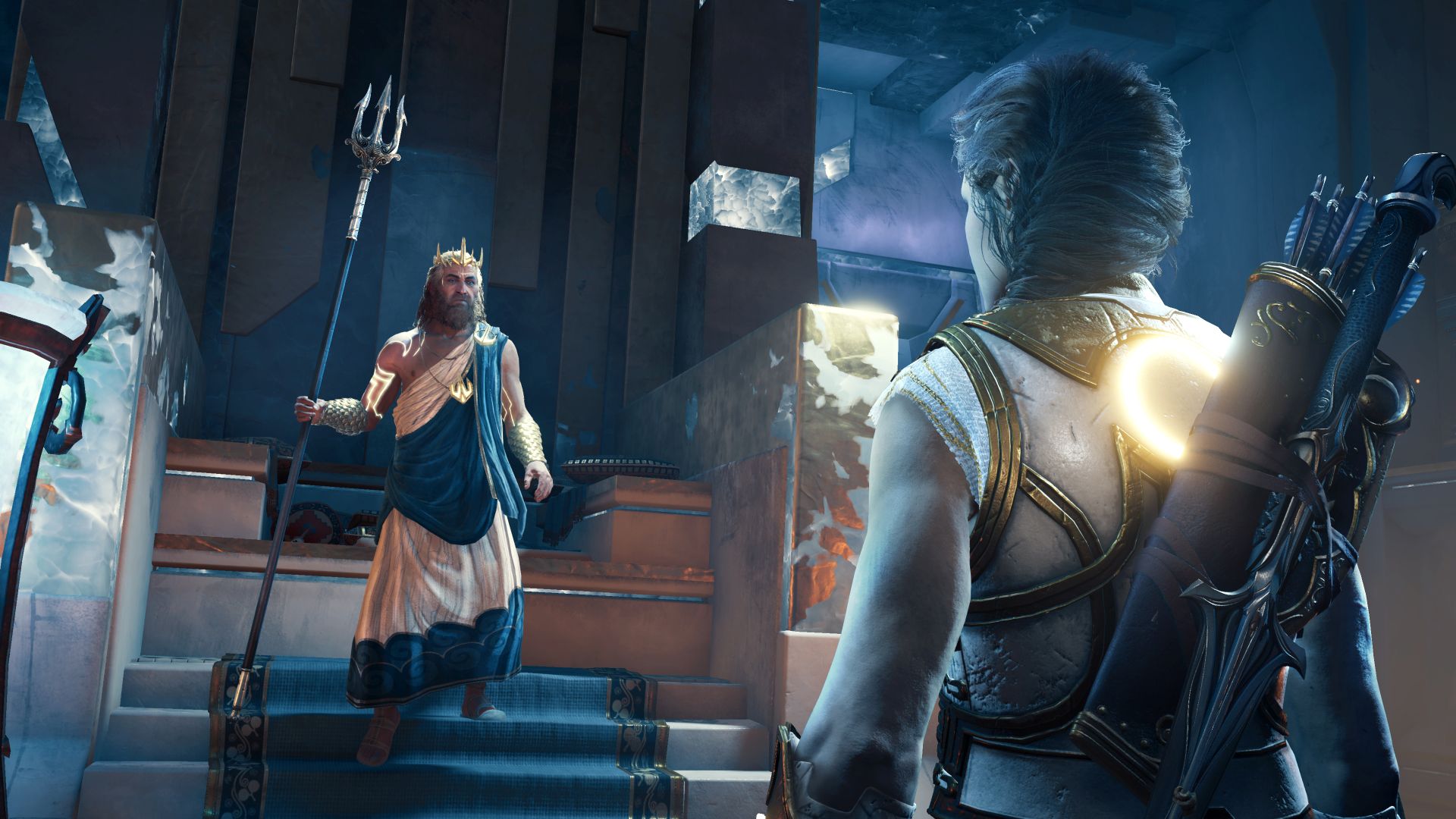
In the second act, things take a turn for the strange with werewolves, human experimentation and a museum of mythical beasts. While its storytelling takes a turn for the convoluted, as Assassin’s Creed tends to when it strays into the more fantastical, this episode’s climax provides a gratifying, cinematic and thoroughly entertaining conclusion to your journey through the realms of the afterlife. Doing battle with the Hekatonchires is a particular highlight, and while this version of the creature lacks the scale or the number of limbs seen in God of War 3, it stands as an equally fearsome foe. Layla’s modern day tale however continues to underwhelm, serving solely to legitimize your actions in the animus and stretching the already weak meta-narrative ever-thinner.
Judgement of Atlantis further deepens Odyssey’s gameplay, finding inventive ways to a iterate on existing mechanics while adding yet another layer to combat. In the ongoing pursuit of unlocking your full potential, you must gain Isu knowledge, allowing you to access domas; archives that hold Keeper’s Insights and other valuable resources. One such resource, Adamant, a precious, otherworldly metal, is used to craft immensely powerful Isu weapons in Hephaistos’ forge. These three weapons; a dagger, a spear and a mace, can all be specced to warrior, hunter or assassin builds and fit perfectly into your end-game arsenal.
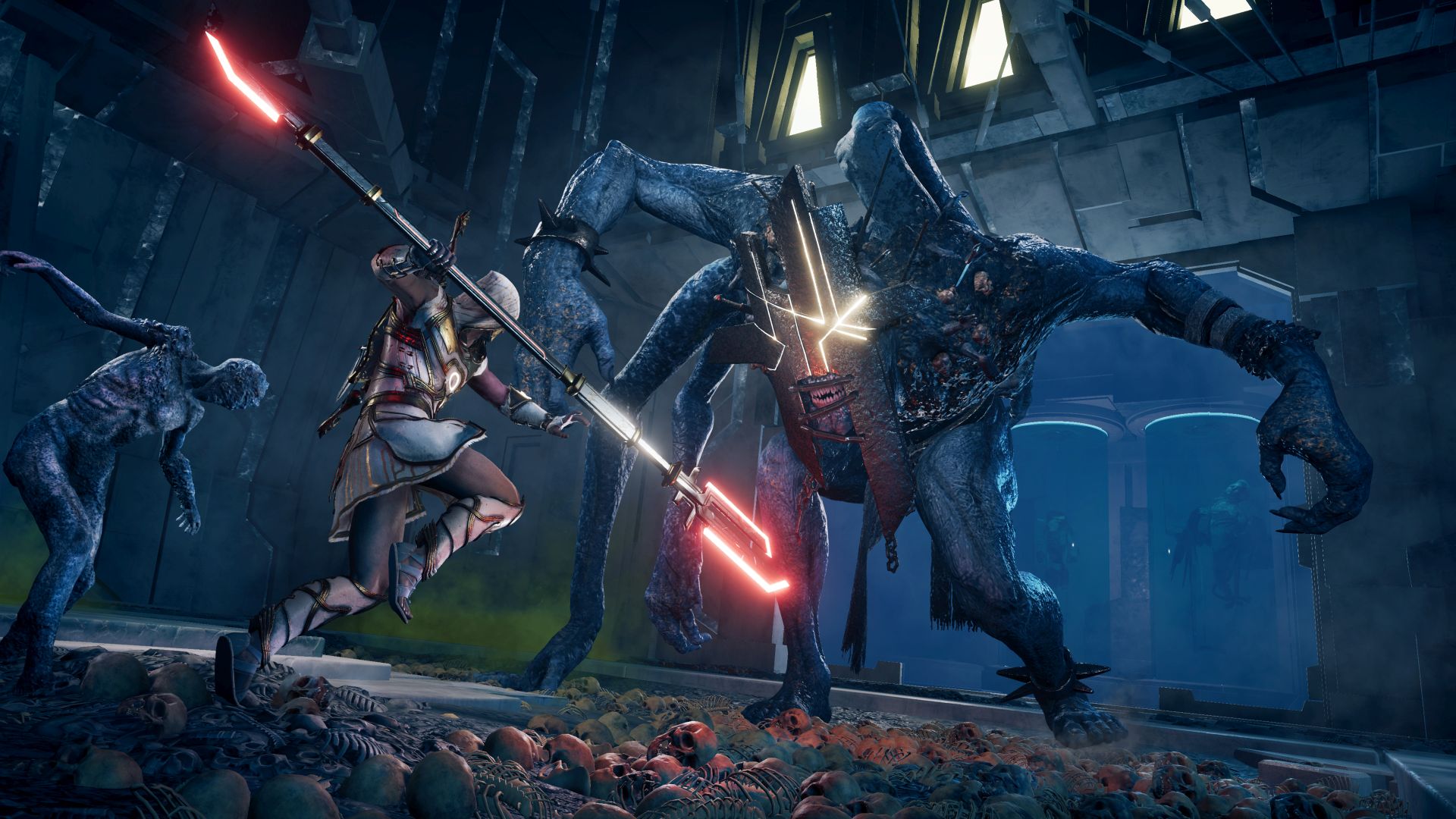
Equally, three Isu enhanced abilities help diversify your approach to combat, proving to be genuinely useful this time around. Ring of Chaos becomes Wrath of Ares, now slowing time for a period before stunning enemies. Kronos’ Punishment replaces Call to Arms, sending out a replica of yourself to assassinate foes without revealing your own whereabouts. Lastly, and most useful of all, Blessing of Kronos transforms Venomous Attacks, turning the tables of battle by negating enemy Isu powers, rapidly building adrenaline and buffing your own weapons with golden light to both amplify damage and extend range. A new Atlantean armour set can also be gathered from high level Polmarchs, but unfortunately this set lacks the stats of aesthetics of last episode’s Armour of the Fallen.
Judgement of Atlantis is a fitting end to Odyssey’s season pass content. Convoluted yet thoroughly entertaining storytelling frame an adventure that continues to champion Odyssey’s greatest strengths; combat, world building and art design. Inventive new skills and powerful Isu weapons further elevate and diversify Odyssey’s thrilling, nuanced combat system, while the game’s consistently excellent art design bring the dystopian metropolis of Atlantis to vivid life.
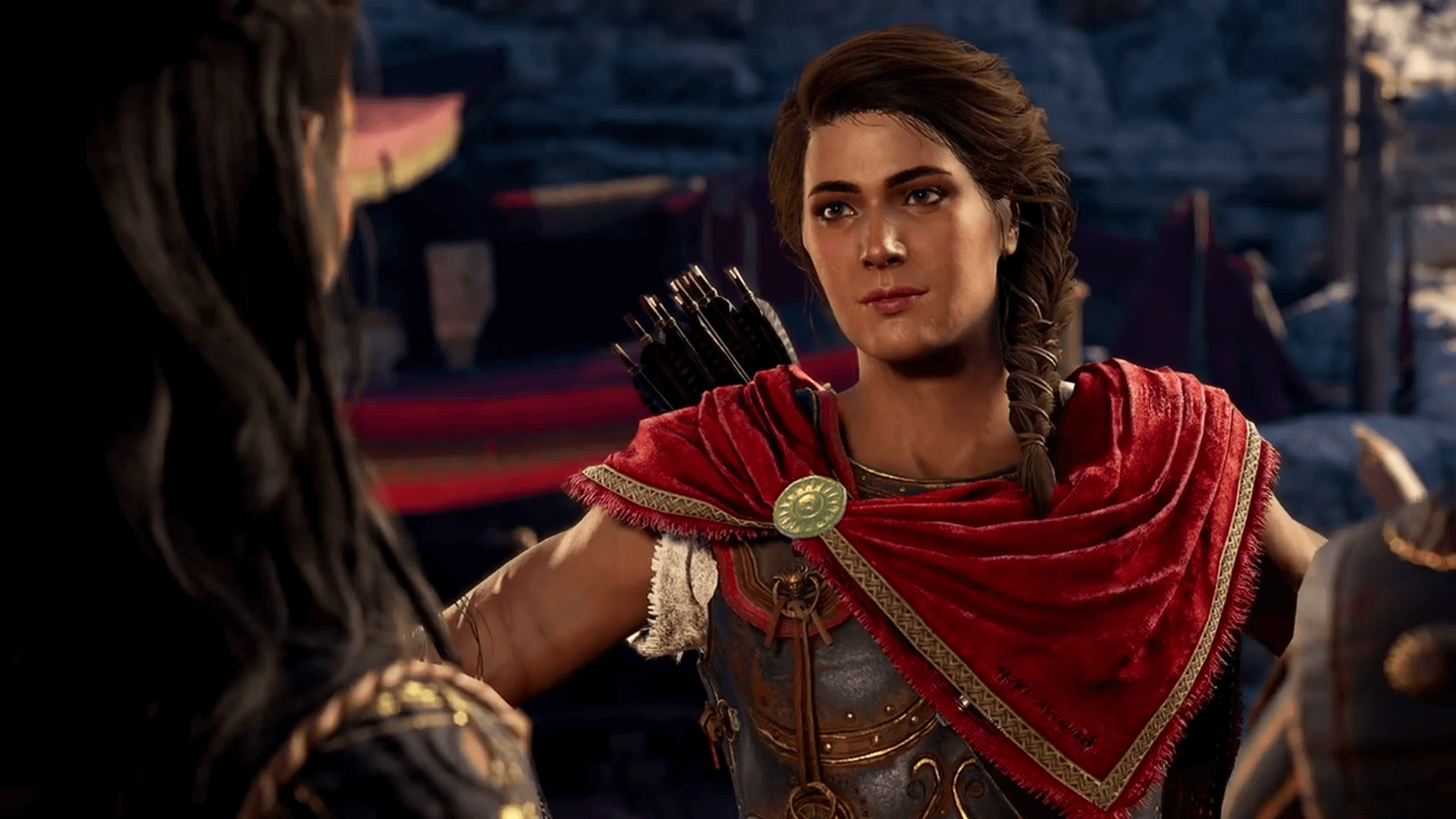
Having poured over 100 hours into Odyssey, my final adventure in its world and alongside Kassandra felt bittersweet. While one last Lost Tale of Greece remains, Judgement of Atlantis feels like a farewell to both a game and a protagonist I have connected to and invested myself in so intensely. For me Odyssey represents a new standard for the series in both the game’s quality and Ubisoft’s stellar post-launch support. While I am sad to see my time with the game come to a close, my affection for the series and my anticipation of its next chapter only grows.
Assassin's Creed Odyssey - The Fate of Atlantis: Judgement of Atlantis PS4 Review
-
Overall - Fantastic - 8/108/10
Summary
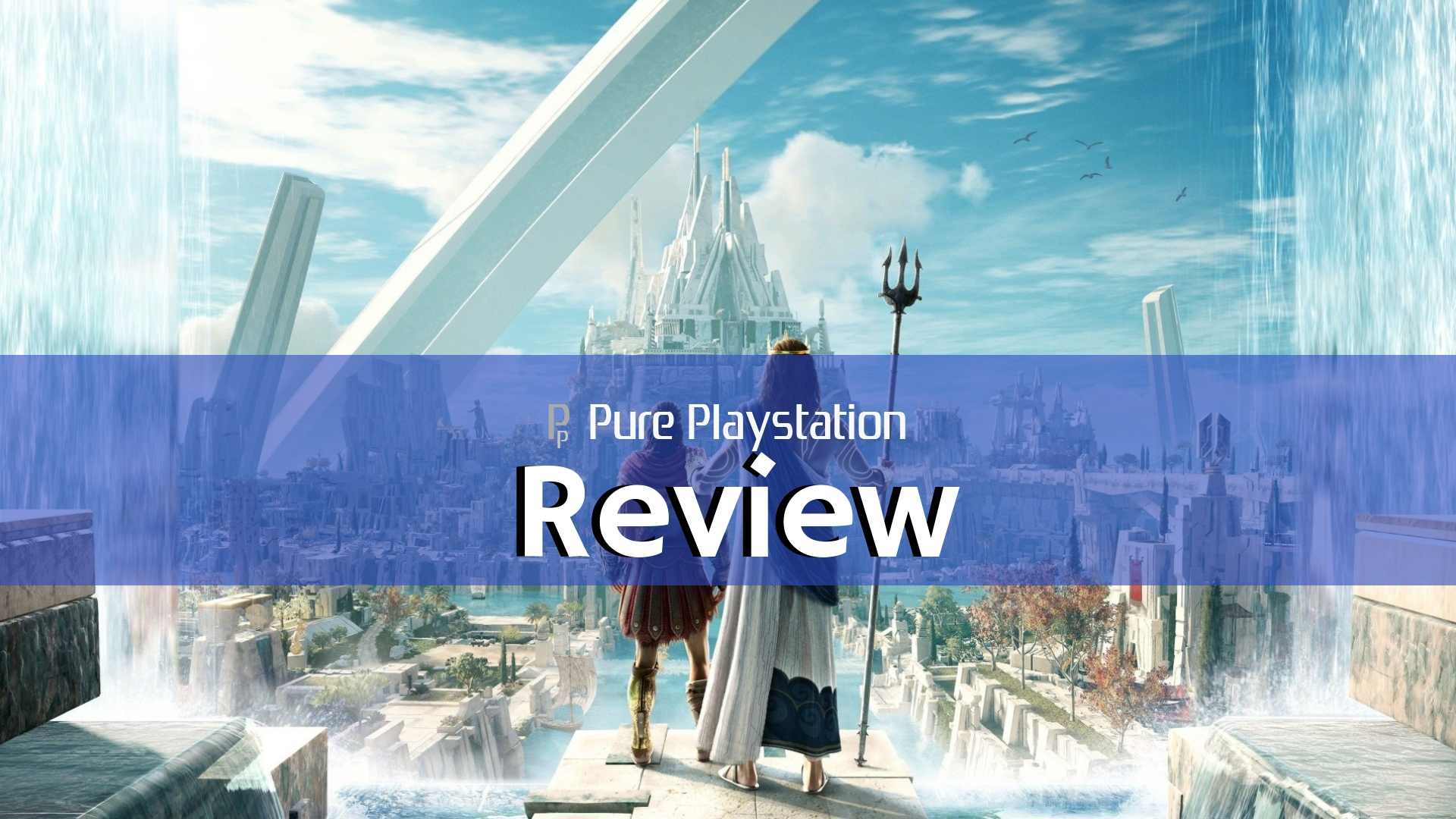
Judgement of Atlantis is a strong final chapter to Odyssey’s season pass and provides an apt farewell to the game as a whole. Its storytelling feels quintessentially Assassin’s Creed, marrying the tangible with the fantastical while providing plenty of space among the maelstrom for Kass’ character to grow. However, its in its gameplay and art design that Judgement of Atlantis truly shines, adding some of the most significant enhancements to combat while providing one of Odyssey’s most stunning settings to date.
Review Disclaimer: This review was carried out using a copy of the game bought at the reviewer’s expense. For more information, please read our Review Policy.
Reviewed using PS4 Pro.


